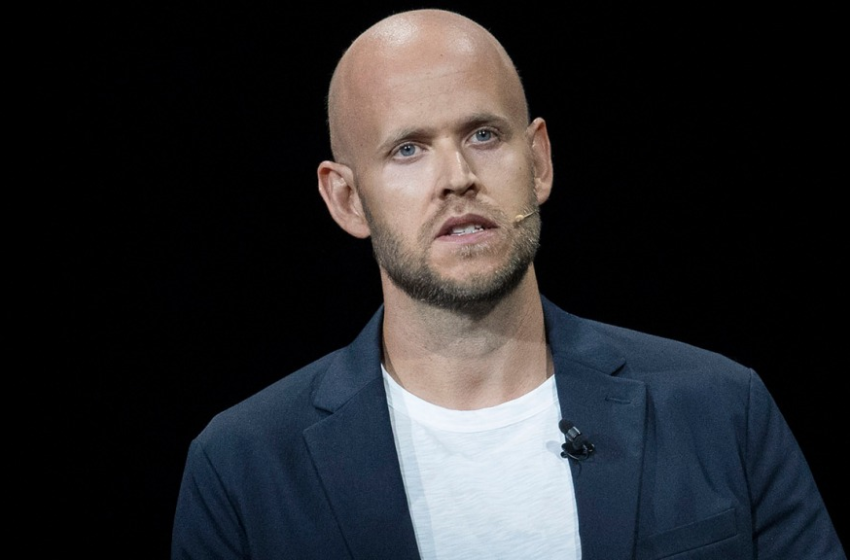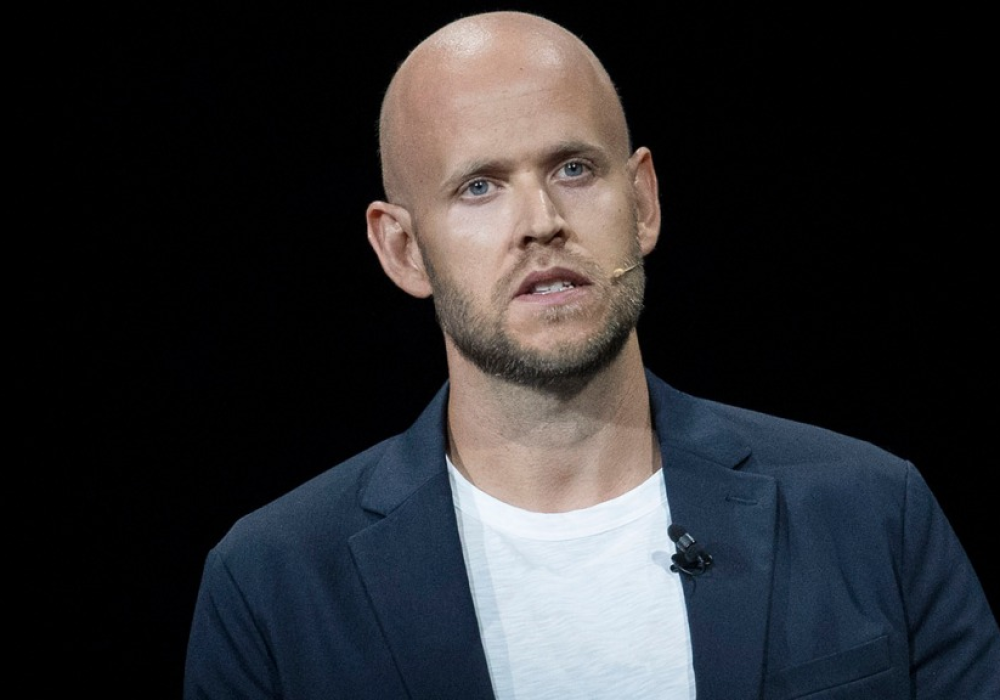With a growing list of prominent artists and podcasters supporting Neil Young’s protest of Joe Rogan, Daniel Ek attempted some damage control.
Dissenters began to include podcasters with business ties to Spotify: Brené Brown, who has two Spotify-exclusive shows, and Prince Harry and Meghan Markle, whose company Archewell Audio has an exclusive multiyear deal with the audio giant. So the Spotify CEO sought to publicize the company’s platform rules and assure listeners that the company would be adding content advisory labels to podcast episodes discussing COVID-19 in a message shared on Jan. 30.
The effort by Ek to showcase the platform’s rules hasn’t quieted criticisms. On Feb. 1, Brown, host of Spotify podcasts Unlocking Us and Dare to Lead, elaborated on the decision to pause recording for now. “As a creator on Spotify, my ask has been very straightforward since the beginning: I’d like Spotify to have a transparent misinformation policy (made available to the public) that balances addressing the complex misinformation issues we face today while respecting free speech,” Brown wrote. “And to be meaningful, this policy must be applied across the platform without exception.”
But as Spotify is under the spotlight for its handling of Rogan — who released an episode in December featuring a vaccine skeptic who baselessly claimed people were being “hypnotized” to believe facts about COVID, sparking 270 medical pros to write an open letter in protest — the rift is exposing issues that artists and content creators have long been frustrated about. Even Young, who left “because Spotify is spreading fake information about vaccines,” added elsewhere in his exit letter on his website that Spotify “continues to peddle the lowest quality in music reproduction.”
Spotify, which is set to announce its Q4 earnings on Feb. 2, most recently said it had 172 million paying subscribers and 381 million total active users globally. The service comprises roughly 31 percent of the music streaming market, outperforming Apple Music and Amazon Music, according to a report from Midia Research. As such, other major podcasters and musicians have been hesitant to jump into the fray — even if they may have existing qualms about their relationships with the Stockholm-based audio platform.
“Spotify has so much power and such a massive market share,” said Joey La Neve DeFrancesco, a musician and organizer with the Union of Musicians and Allied Workers, which has been promoting a #JusticeAtSpotify hashtag. “It’s very difficult for musicians to pull their music as individuals from a streaming platform because it’s not just the income from streaming, which is way less than it should be, but it’s also show bookers or festival bookers or record labels who might be signing you. They’re looking to your Spotify numbers as sort of a determinant of what you will or will not get.”
Podcasts that toe the line between journalism and entertainment, such as a true-crime series, may also be wary of taking a stance on the Rogan/Spotify matter and potentially alienating audiences, not to mention concerns about their ad revenue if they leave a major streaming platform.
“Many of these podcasters have requirements of journalistic neutrality and it’s hard to say what other factors in their individual business partnerships come into play,” a podcast agent at a major agency told The Hollywood Reporter. But as Spotify has prioritized increasing its market share in podcasts — the company has grown its library to over 3.2 million podcasts over the last three years, up from 185,000 — exclusively licensed and in-house podcasts have been a big growth area.
As Spotify has sought to lessen its dependance on major record label releases and grow its subscriber base, the streaming giant has gone on a buying spree to snap up podcast networks like Gimlet Media and The Ringer. The acquisitions aren’t likely to stop either, as Morgan Stanley’s 2022 outlook report in December forecast that Spotify could increase its share of podcast ad-supported revenue to 40 percent, or $3 billion, by 2025, as opposed to its 15 percent share in 2021.
But when it comes to Spotify’s approach to content, the company’s interpretation and implementation of its misinformation policies still appears opaque. Ek’s Jan. 30 note promoted Spotify’s planned content advisory labels, which would direct listeners to a resource hub with COVID information coming from public health officials and scientists as “the first of its kind by a major podcast platform.”
Though the labeling policy seems to follow the likes of Facebook, Twitter and YouTube, which have each attempted to address the spread of COVID misinformation on their platforms with content labels, Rogan isn’t just being hosted on Spotify like thousands of other podcasts. The streaming giant inked a rich, exclusive multiyear licensing deal in 2020 for The Joe Rogan Experience. In effect, Spotify’s top brass bet that they needed their own version of Howard Stern, who famously left terrestrial radio for what became SiriusXM. (The satellite radio provider, notably, was also one of the first to capitalize on Neil Young’s exit, reintroducing a dedicated channel for the artist on its platform shortly after the singer’s catalog left Spotify.)
What’s more, Spotify’s content guidelines regarding COVID-19 misinformation don’t appear to apply to some of Rogan’s most misleading comments and content. According to Spotify, Rogan’s December COVID-19 episode doesn’t run afoul of Spotify’s rule against “promoting or suggesting that vaccines approved by local health authorities are designed to cause death.” Rogan, who reportedly commands a $1 million minimum ad spend on his show, has not yet been given any content labels on his episodes. (A Spotify spokesperson did not respond to questions about when the labels would begin appearing on podcasts.)
With Spotify’s earnings expected to be shadowed by the Rogan brouhaha, it remains to be seen if future podcast deals will be impacted by the company’s handling of misinformation or whether in-house creators seek out deals elsewhere.
And the public relations mess may not ultimately be worth it for Spotify in the long term, a team of analysts at Guggenheim Securities argued in a Feb. 1 note: “With the additional headache of potential content conflicts, we believe Spotify may reconsider the incremental value of exclusive podcast content relative to a focus on differentiation through platform and experience in the future.”
The same could be said for other rival streaming platforms, who are quietly reanalyzing their own policies to help avoid a Rogan problem of their own. “We’re keeping a close watch,” an executive at a rival streaming platform told THR. For instance, Apple Podcasts, which has a designated team to review episodes, has a brief content guidelines page that notes the platform will add a “label” to the podcast if it contains “harmful or objectionable content that is disputed by authoritative sources,” though there are no explicit guidelines around COVID-19. Amazon Music also has general language in its terms and conditions for podcasters that restricts “inappropriate or offensive” material but does not address misinformation or COVID-19.
But, in the meantime, don’t bet on Spotify abandoning Rogan soon. “I could see a world in which Spotify just kind of battens down the hatches and tries to push through towards the end of [Rogan’s] deal,” a podcast studio executive said. “It just is going to depend on how much noise gets generated from this by other artists.”













